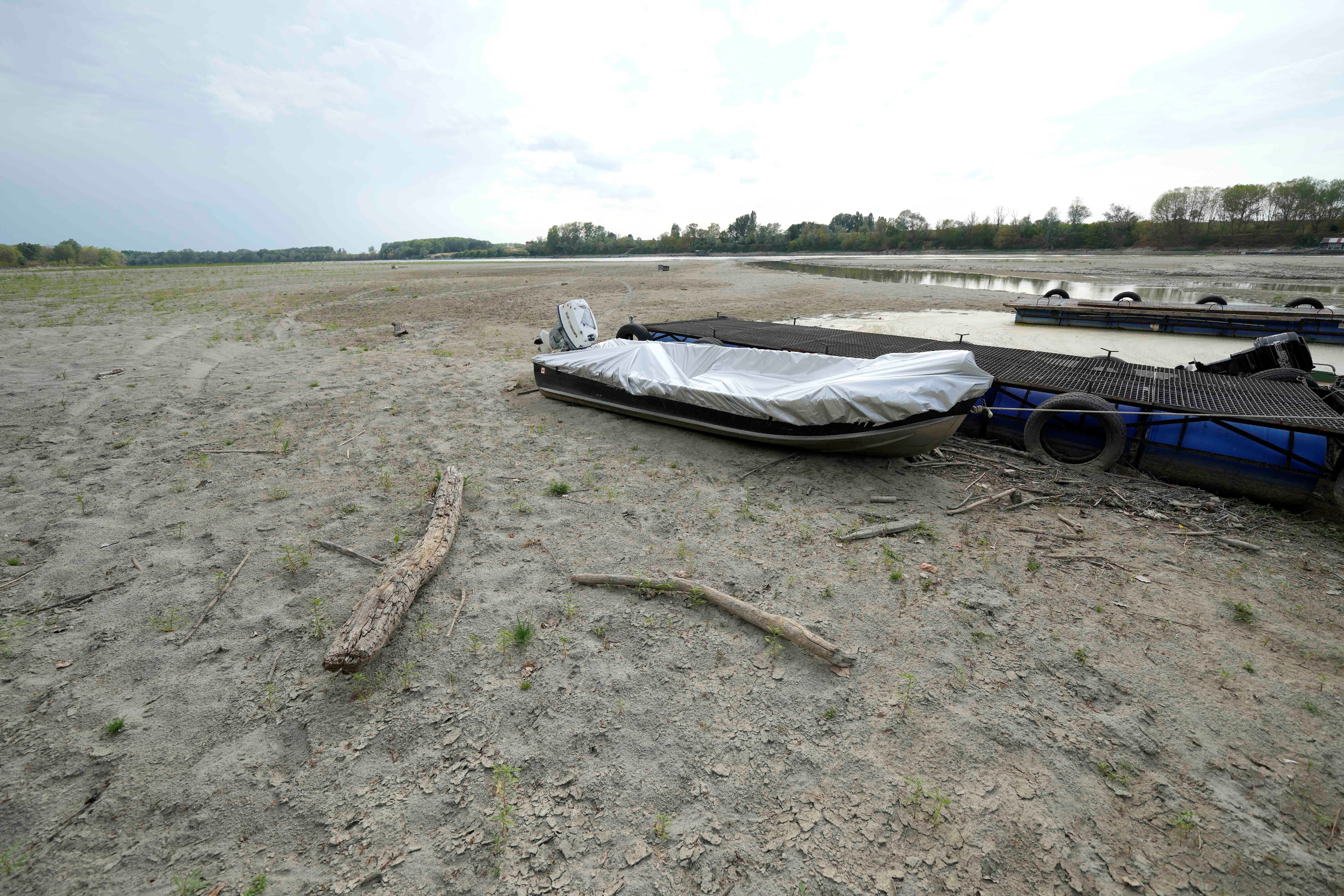Second year of drought anticipated in Italy has major implications
Italy's winter had little rain or snowfall, and experts anticipate a severe drought for the second year in a row which will impact farms and diminish access to potable water.
-

Boats lie on the dried riverbed at a tourist dock along the Po river in Ficarolo, Italy, Thursday, July 28, 2022. (AP)
With little rain and snowfall this winter, Italy is anticipated to face yet another year of severe drought. This possibility raised the alarm as it has several implications in various fields, such as farming, hydropower, and access to drinking water.
Vast stretches of the Po, the nation's longest river that provides water to several northern and central regions, are already dry. As for Lake Garda, its water levels are at their winter lowest in 35 years.
Venice's canals have dried up due to unusually low water levels, leaving gondolas stranded.
The National Research Council (CNR) of Italy reported that rainfall in the north was down 40% in 2022 and that there has been a notable absence of precipitation since the start of 2023.
Luca Mercalli, the president of the Italian Meteorological Society told The Guardian that “nothing has changed since 2022,” adding, “We are still in a situation of deficit … let’s wait for the spring, which is usually the rainiest period for the Po valley. There is a good possibility that rainfall in April and May can compensate – it’s the last hope. If we have no spring rain for two consecutive years then it would be the first time this has ever happened.”
Here's what #Italy's longest river looks like after the worst #drought in 70 years hit the country.#ClimateCrisis pic.twitter.com/8GyaZkH6DO
— Al Mayadeen English (@MayadeenEnglish) June 23, 2022
In 2022, the drought cost farmers about €6 billion in damaged agricultural produce, Coldiretti, Italy’s biggest farmers’ association, noted.
Coldiretti also noted that unless the anticipated drought is averted, farmers warned that a third of all products will be at risk.
On a different but similar topic, Alessandro Bratti, the Po River Basin authority's president, explained that in Trentino, the drought was affecting hydroelectric power. Bratti said, “If you have no water you cannot produce energy, so this is another problem,” adding that “it is very critical because it hasn’t snowed or rained during this period and the forecast says it will stay this way.”
Furthermore, Bratti said the decrease in Po's water levels leads to the encroachment of seawater further up the river.
For example, “Last year seawater entered for almost 40km [25 miles], which also causes a problem for drinking water as you need to use desalinators,” said Bratti.
When it comes to solutions, Bratti highlighted that “we have projects and funds for hydrological infrastructure, such as building barriers to prevent the sea from entering the river,” adding, “There is also a proposal to build 10,000 lakes and to introduce technical systems to cut down the waste of water in farming. We now need to accelerate the projects.”
Read more: Drought looming in England in 2023; fruit, vegetable crop in jeopardy

 3 Min Read
3 Min Read








